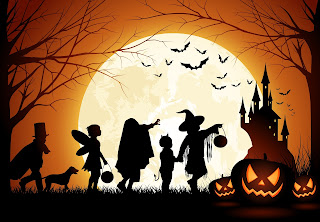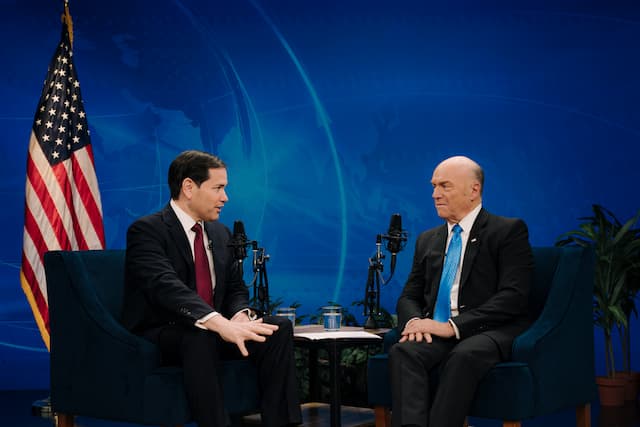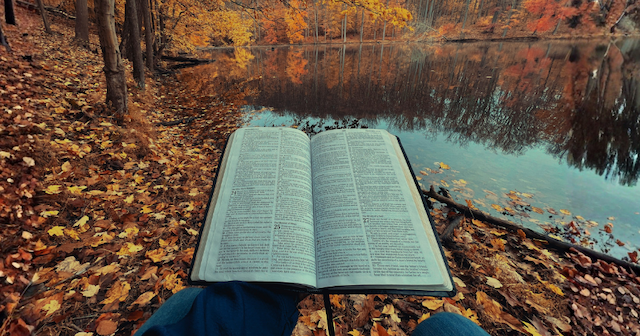Should Christians Celebrate Halloween?
I’m sure
most of you know by now that I don’t hesitate to tackle thorny issues. And I am a firm believer in “agreeing to
disagree” with people. So, here we go as
we look at what could be a very difficult issue in the minds of many Christians.
With
no direct references to Halloween in the Bible, resolving the debate can be a challenge.
Are there appropriate ways for Christians
to approach Halloween; is there a biblical way to observe this secular holiday?
Each year when the temperatures start to cool, the holiday season starts to
heat up, and this controversial question rears its ugly head, “Should
Christians celebrate Halloween?”
The dilemma over Halloween may fall under the category of a Romans
14:11-23 issue; a “disputable matter.” These are matters that lack clear and specific
direction from the Bible. Ultimately, Christians must decide for themselves and
follow their own convictions regarding the observance of Halloween.
Together we will explore what the Bible says about this very
controversial topic, providing food for thought as you decide for yourself on
the issue.
Some Christians celebrate Halloween simply by dressing up in
a costume and having fun, seeing it as innocent and harmless. Other Christians are equally convinced that
Halloween is a satanic holiday established to worship evil spirits and promote
darkness and wickedness. So, who is
right? Is it possible for Christians to
celebrate Halloween without compromising their faith? At this point I need to make known my mixed
feelings about this going all the way back to the day I dabbled in the occult myself. Even though I was involved only a very short
time, it made a deep impression on me as to the reality of Satan and the demonic
world.
Halloween, no matter how commercialized, has almost completely pagan origins. I don’t have the time to go into a great deal
of detail, but from the limited research I have done I’ve found that some say the
origins of Halloween can be traced back to ancient Ireland and Scotland around
the time of Christ. On October 31st the
Celts celebrated the day because it was when animal herders would move their
animals into barns and pens and prepare to ride out the winter. This was also the time of the crop harvests. This annual change of season was marked by a
festival called Samhain, pronounced “sow-ane” (Sow rhymes with cow) which means
“end of summer.”
Samhain also had religious significance, and people burned
fruits, vegetables, grain, and possibly animals as offerings to the gods. In ancient Celtic stories, Samhain was a
magical time of transition when important battles were fought and fairies cast
spells. It was a time when the barriers
between the natural world and the supernatural were broken. The Celts believed that the dead could walk
among the living at this time. During
Samhain, the living could visit with the dead, who they believed held secrets
of the future. Scholars believe that
Halloween’s association with ghosts, food, and fortunetelling began with these
pagan customs more than 2,000 years ago. As innocent as it may seem to some, it is not
something to be taken lightly.
Christians tend to have various ways to celebrate or not to
celebrate Halloween. For some, it means
having an “alternative” Harvest Party. For
others, it is staying away from the ghosts, witches, goblins, etc., and wearing
innocuous costumes, e.g., little princesses, clowns, cowboys, super-heroes,
etc. Some choose not to do anything, only to lock themselves in the house with the lights off. With our freedom as Christians, we are at
liberty to decide how to act.
Scripture does not speak at all about Halloween, but it does give us some
principles on which we can make a decision. In Old Testament Israel, witchcraft was a crime
punishable by death. (Exodus 22:18; 20:6, 27) The New Testament teaching about the occult is
clear. Acts 8:9-24, the story of Simon,
shows that occultism and Christianity don’t mix. The account of Elymas the sorcerer in Acts
13:6-11 reveals that sorcery is violently opposed to Christianity. Paul called Elymas a child of the devil, an
enemy of righteousness and a perverter of the ways of God.
In Acts 16, at Philippi, a fortune-telling girl lost her
demon powers when the evil spirit was cast out by Paul. The interesting part here is that Paul refused
to allow even good statements to come from a demon-influenced person. Acts 19 shows new converts who have abruptly
broken with their former occultism by confessing, repenting of their evil deeds,
bringing their magic paraphernalia and burning it before everyone. (Acts 19:19)
So, should a Christian celebrate Halloween? Is there anything evil about a Christian
dressing up as a princess or cowboy and going around the block asking for
candy? No, there is not. Are there things about Halloween that are
anti-Christian and should be avoided? Absolutely!
If parents are going to allow their
children to participate in Halloween, they should make sure to keep them from
getting involved in the darker aspects of the day. If Christians are going to take part in
Halloween, their attitude, dress, and most importantly, their behavior should
still reflect a redeemed life. (Philippians 1:27)
There are many churches that hold “harvest
festivals” and incorporate costumes, but in a godly environment. There are many Christians who hand out tracts
that share the Gospel along with the Halloween candy. The decision is ultimately ours to make. But as with all things, we are to incorporate
the principles of Romans 14.
We can’t
allow our own convictions about a holiday to cause division in the body of
Christ, nor can we use our freedom to cause others to stumble in their faith. 1 Corinthians 12:24-26 reminds us, “But God
has put the body together, giving greater honor to the parts that lacked it, so
that there should be no division in the body, but that its parts should have
equal concern for each other. If one part suffers, every part suffers with it;
if one part is honored, every part rejoices with it.”
We are to do all things as to the Lord. (See Colossians
3:23)
There are many Bible verses similar to those listed above,
but nothing that specifically warns against observing Halloween. Rather than providing an answer, the purpose
of this article is to cause you to ask yourself questions and think about your
convictions on this issue.
As Christians, why are we here in this world? Are we here to live in a safe and protected
environment, guarded against the evils of the world, or are we called to reach
out to a world filled with danger and be the light of Christ? Halloween brings people of the world to our
doorstep. Halloween brings our neighbors
out into the streets. I can think of several
creative ways to seize this opportunity for developing new relationships and sharing
my faith.
So, what did we do instead? Hide in the basement with the lights off? Hurry the family out of the house? No, darkened homes are the enemy’s victory! Where does your light shine the brightest—in the
darkness!
Halloween is the one day a year when neighbors come to your
door expecting to receive something. So
give them JESUS! Our family chose to
give God the glory and the devil a black eye by reaching out to our neighbors
with the gospel of Jesus Christ! “You
are the light of the world… let your light shine before men, that they may
see your good deeds and praise your Father in heaven.” (Matt. 5:14a; 16b)
Halloween gives you a great opportunity to show how
Christians celebrate the day that death was defeated, and you can give them
Gospel tracts and tell the story of how every ghost, witch, and demon was conquered
the day Jesus rose from the grave.
So stop justifying why it is okay to celebrate this demonic
and worldly holiday. There are no muddled lines or gray areas about it.
A
committed follower of Jesus Christ should not celebrate Halloween, but it is possible to use it for the glory of
God!
Can God change your life?
God has made it possible for you to
know Him, and experience an amazing
change in your own life.
Discover how you can find peace
with God.






